Baby yogurt
Let's talk baby yogurt. I will guide you through introducing yogurt to babies, what to look for when buying baby yogurt, the nutrition yogurt provides and ultimately what is the best yogurt for babies and toddlers.
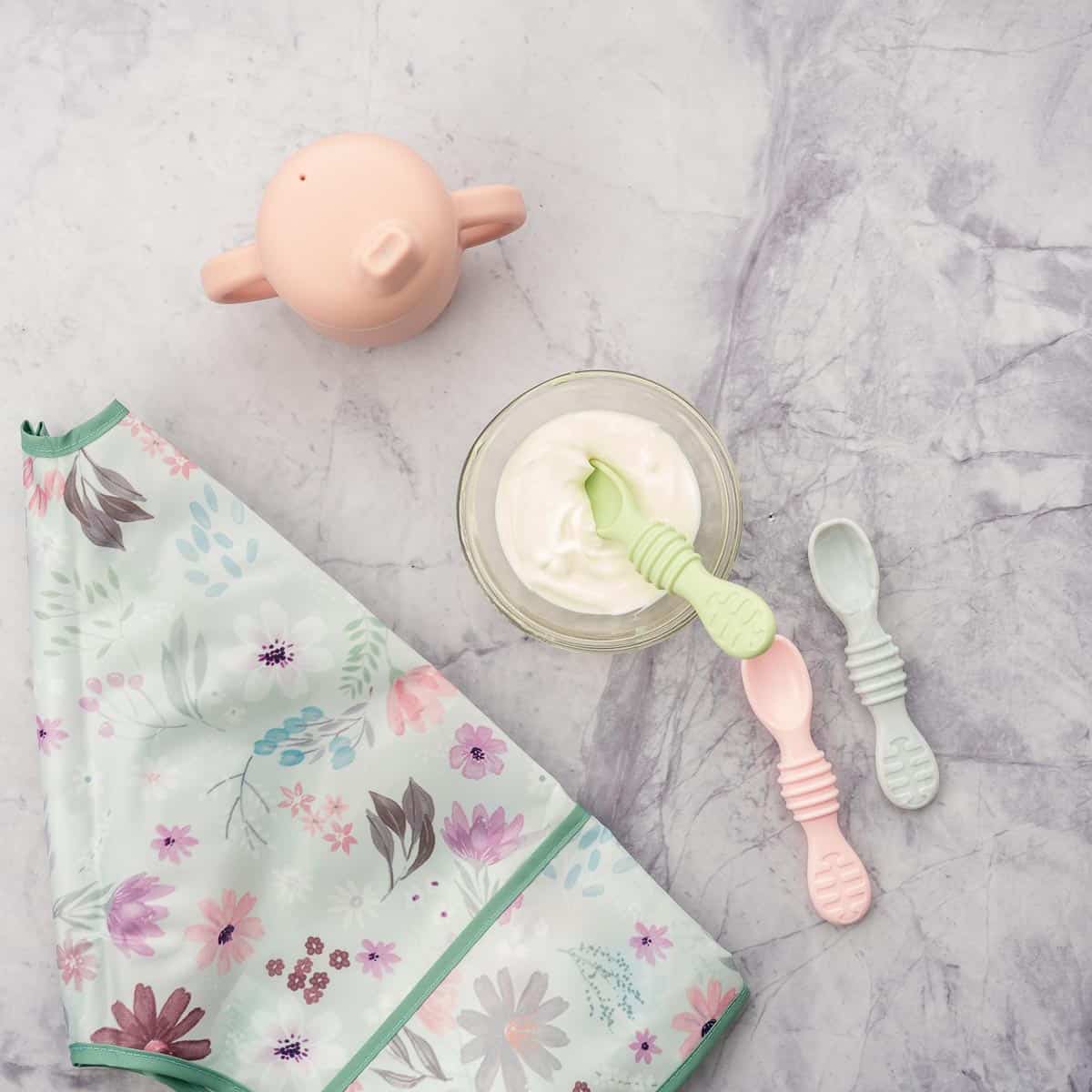
When can babies have yogurt?
Ultimately you can introduce yogurt to your baby when they are at an age that is developmentally ready to introduce solids.
The WHO, AAP, European Food Safety Authority, and The Australian and New Zealand food safety guidelines all have guidelines on the appropriate age for babies to start solids. These all vary and can change over time, so be sure to check with the current guidelines in your country.
Yogurt is a dairy product made from cow's milk.
Current guidelines from allergy professional bodies around the world including the Australasian Society of Clinical Immunology and Allergy ASCIA, the American Academy of Allergy, Asthma and Immunology AAAI, and the European Academy of Allergy and Clinical Immunology EAACI
State there is no evidence that delaying the introduction of potential allergen foods such as cow's milk protein (which is found in yogurt) reduces the risk of allergy, and that these foods can be introduced into the diet when the introduction of complementary foods commences.
- When your baby is developmentally ready to start solids
- When your baby is of an age that the guidelines in your country state it is safe to begin solids
- This is typically at or around 6 months of age
If your baby already has been diagnosed food allergies then the advice can differ, so check with your healthcare professional and your local dietary guidleines.

Why can babies have yogurt but not milk?
There can be a lot of confusion about when you can introduce cow's milk to babies.
The thing is, you can introduce cow's milk to your baby in complementary foods when you start them on solids.
Cow's milk should not be used to replace breast milk or infant formula as a milk feed before one year of age, but as a complementary food it is fine for there to be cow's milk in the meals and snacks you offer your baby (as long as there are no adverse reactions).
As I mentioned above yogurt is a dairy product and therefore made from cows
Which yogurt to choose?
It can be difficult to navigate the yogurt section of the supermarket when you are on the hunt for the best yogurt for your baby. There are so many brands, flavours and packaging types.
Ultimately you should look for:
- A full-fat plain yogurt
- with no added sugar
Save This Recipe!

Is plain yogurt healthy for babies?
Let's talk about the health benefits of yogurt. Unsweetened full-fat plain yogurt is full of nutrients, it is a good source of
- Calcium,
- Vitamin B12
- Vitamin D
It is also a source of protein while being low in sugar and sodium
Yogurt can also be a source of probiotics depending on the brand and manufacturing process.
Baby yogurt vs. Regular Yogurt
In some countries, you may see yogurt marketers specifically as 'baby yogurt'. This is generally a marketing ploy, and if you check the nutritional panel and ingredients list you may find that the baby yogurt actually contains added sugar. A full fat unsweetened yogurt is the best choice for your baby.
What about Dairy Free Options?
As I discussed earlier babies can typically have cows milk-based yogurt, however, there are some times when a dairy-free alternative would be needed. Babies with a diagnosed cows milk protein allergy should of course not be offered regular yoghurt.
Dairy-free yogurts are available and include: (this is a rapidly developing product space though, so I see more and more types becoming available)
- Coconut yogurt
- Soy yogurt
- Cashew based yogurt
- Almond milk-based yogurt
- Oat and Rice based yogurt
Depending on the ingredients used to make the diary free yogurt, they can have quite a different nutrient profile to cows milk yogurt, so it is worth checking the nutritional panel to see if they provide a source of protein, calcium, and Vitamin D.
How to serve yogurt to your baby
On a spoon:
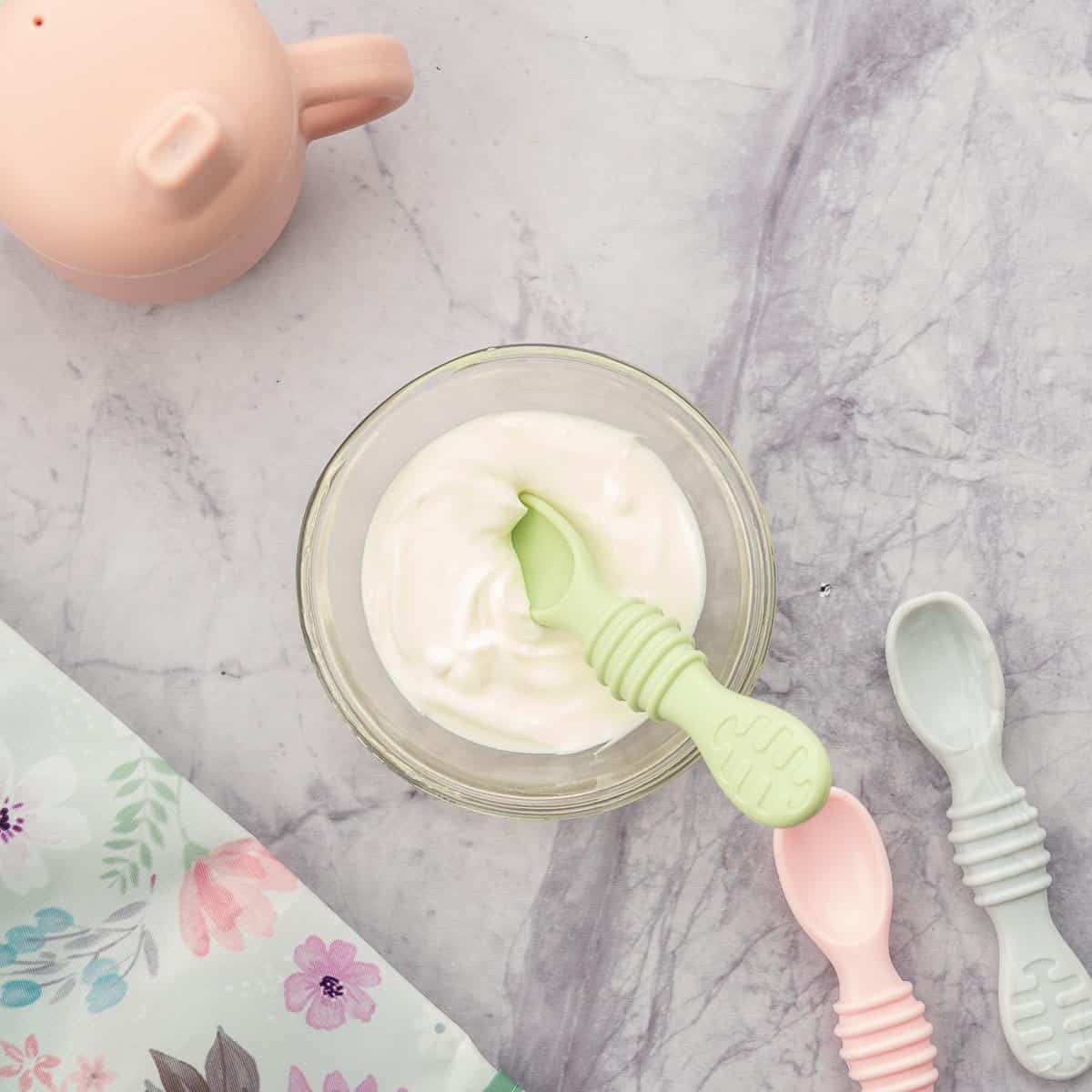
Pre-loaded spoons: If you are on a baby-led weaning journey you can still serve your baby yogurt on a spoon, pre-load short-handled spoons with yogurt and let your baby self-feed and explore the yogurt.
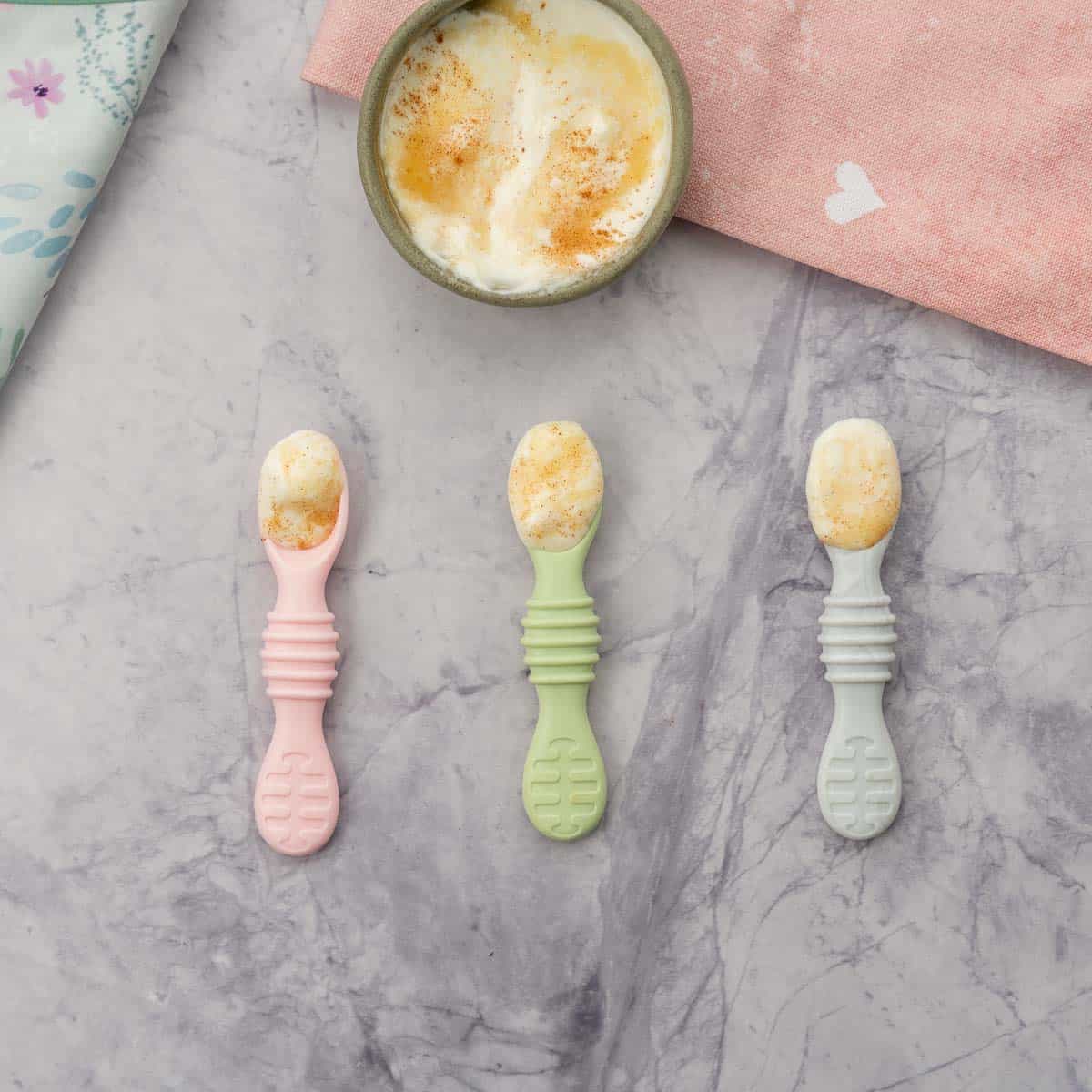
As a dip: Let your child dip soft fruits (ripe pears, banana, or cooked apples cut into batons) into yogurt
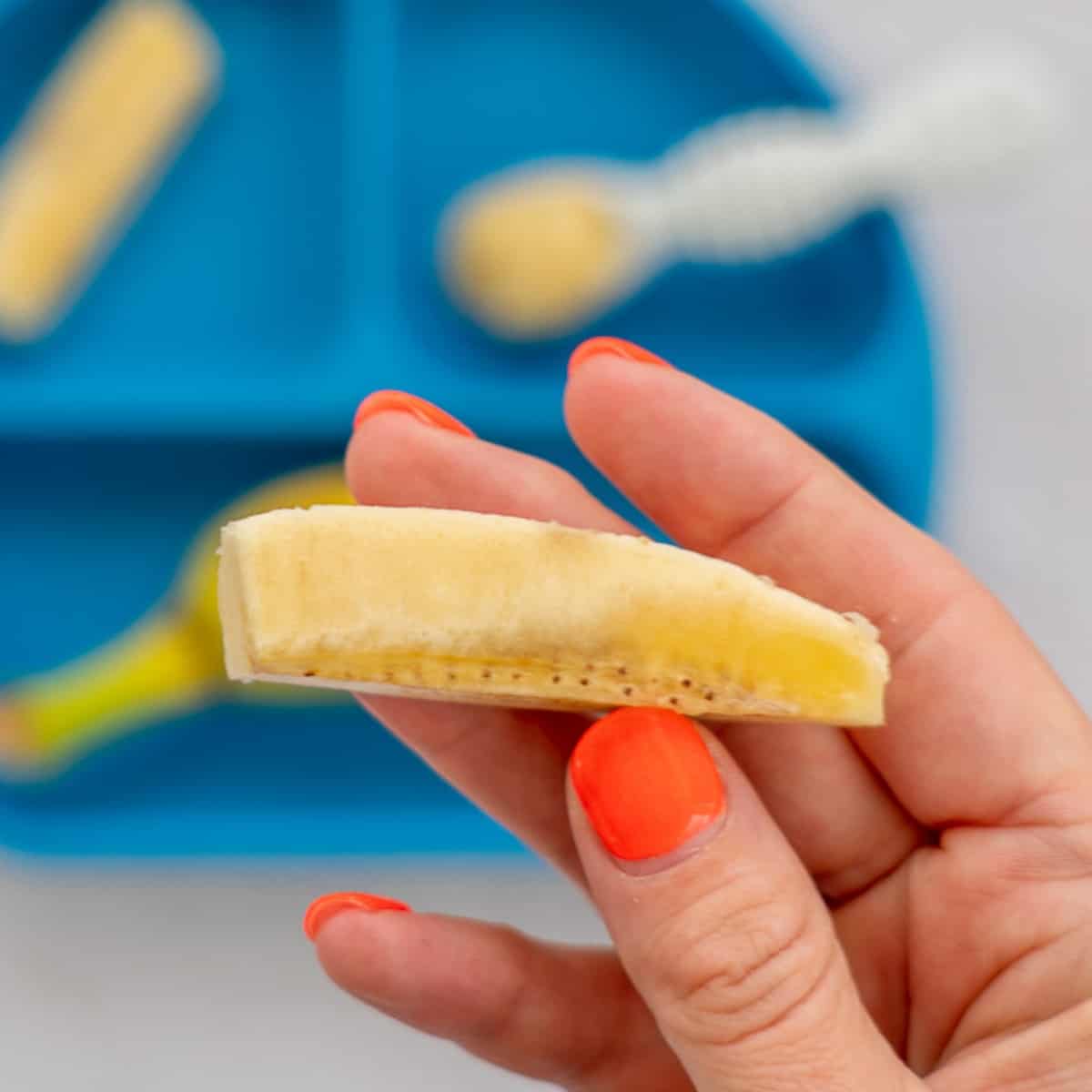
A savoury experience: Don't forget yogurt can also be a savoury delight, it can be a marinade to meat, a dip for soft vegetables and meat, or a side to a curry
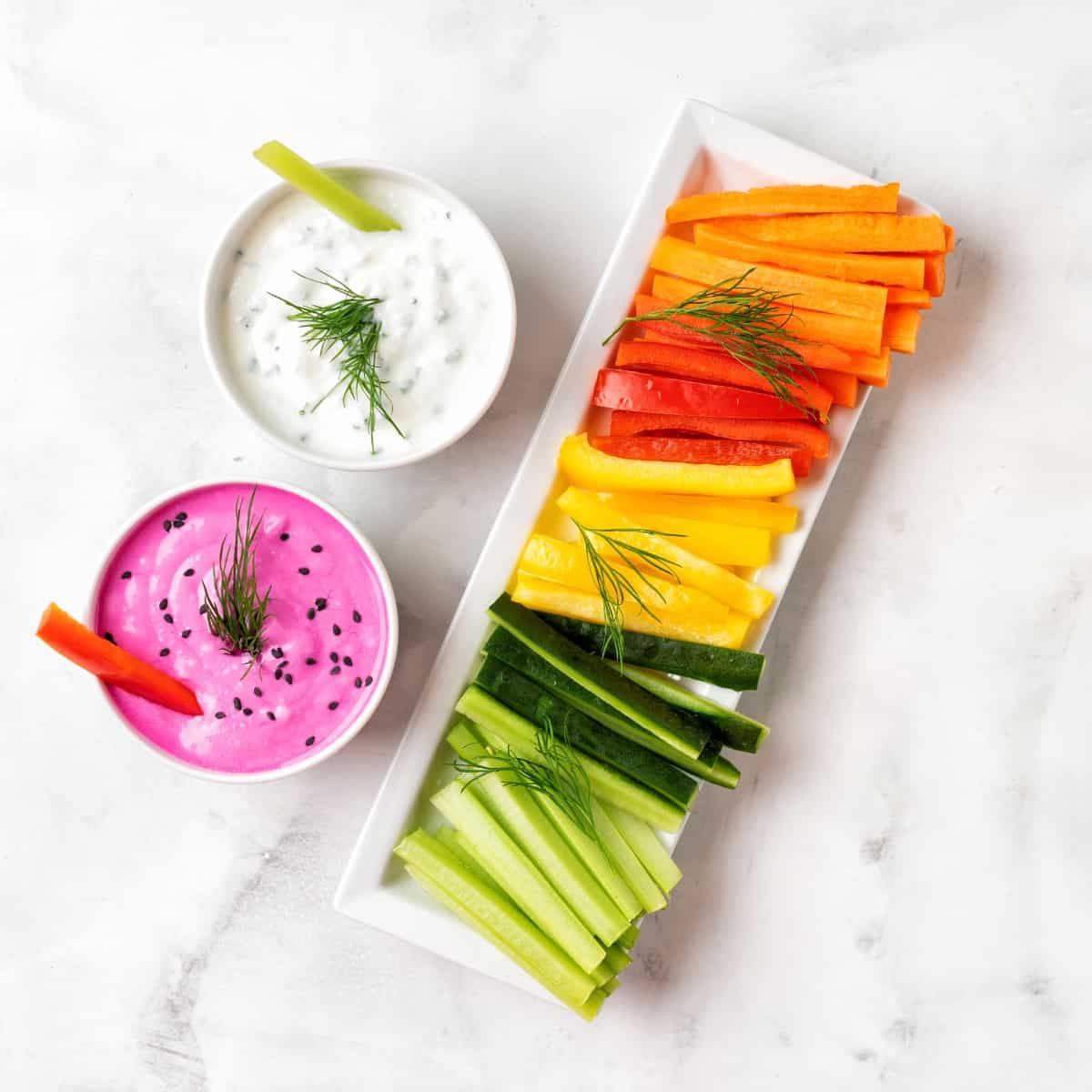
In smoothies:
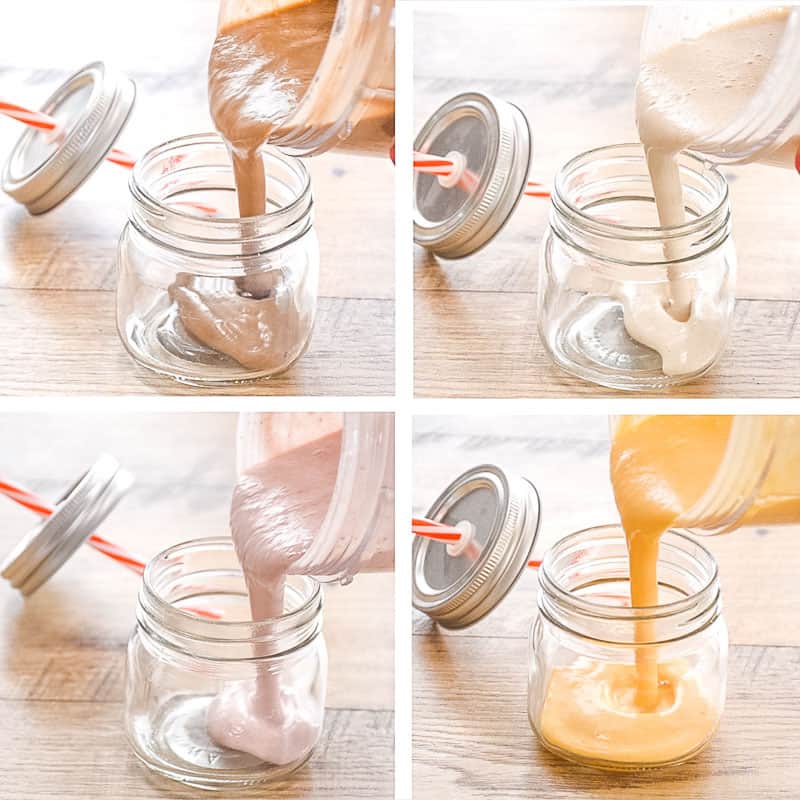
In baked goods: Pancakes, Muffins
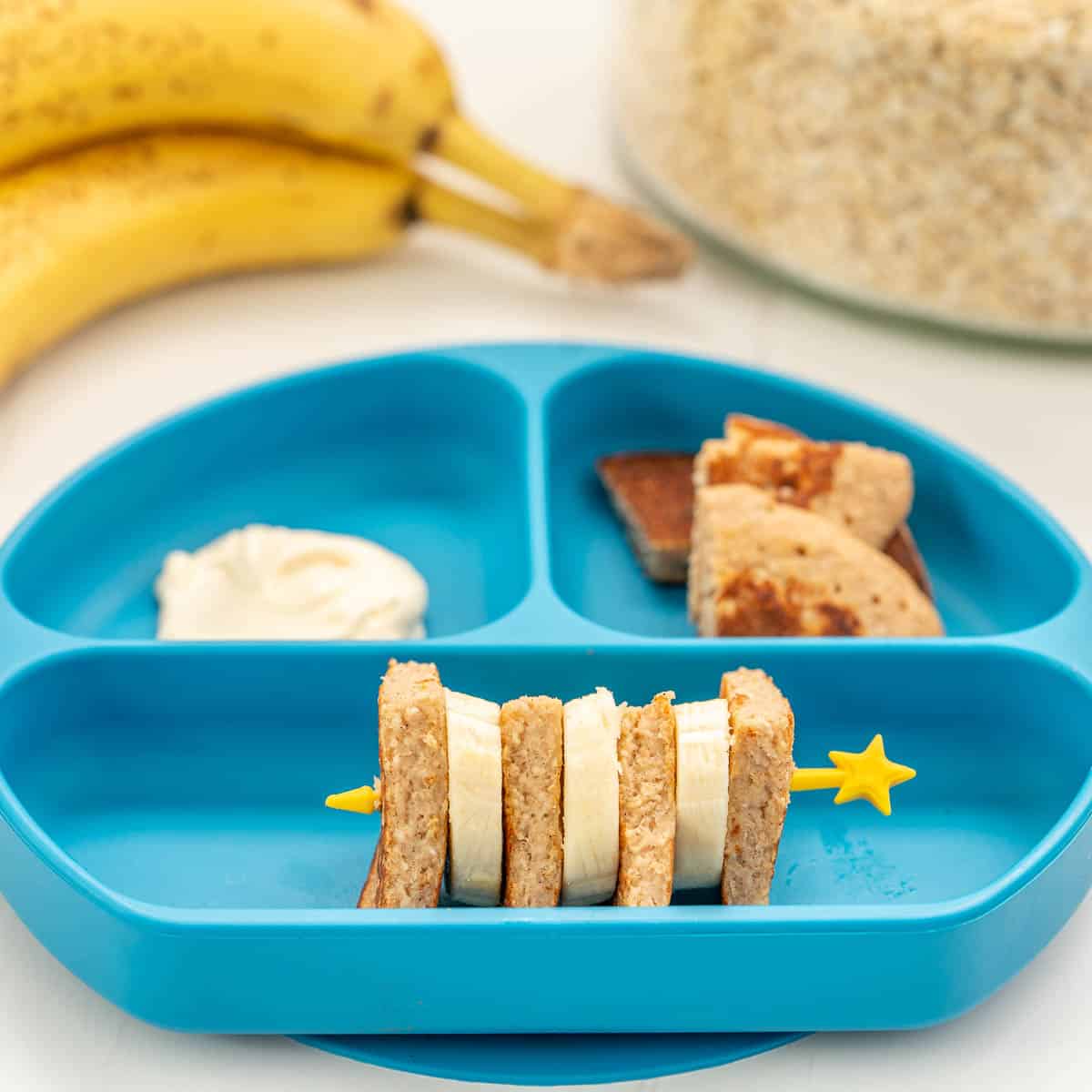
Frozen: Baby Yogurt Melts
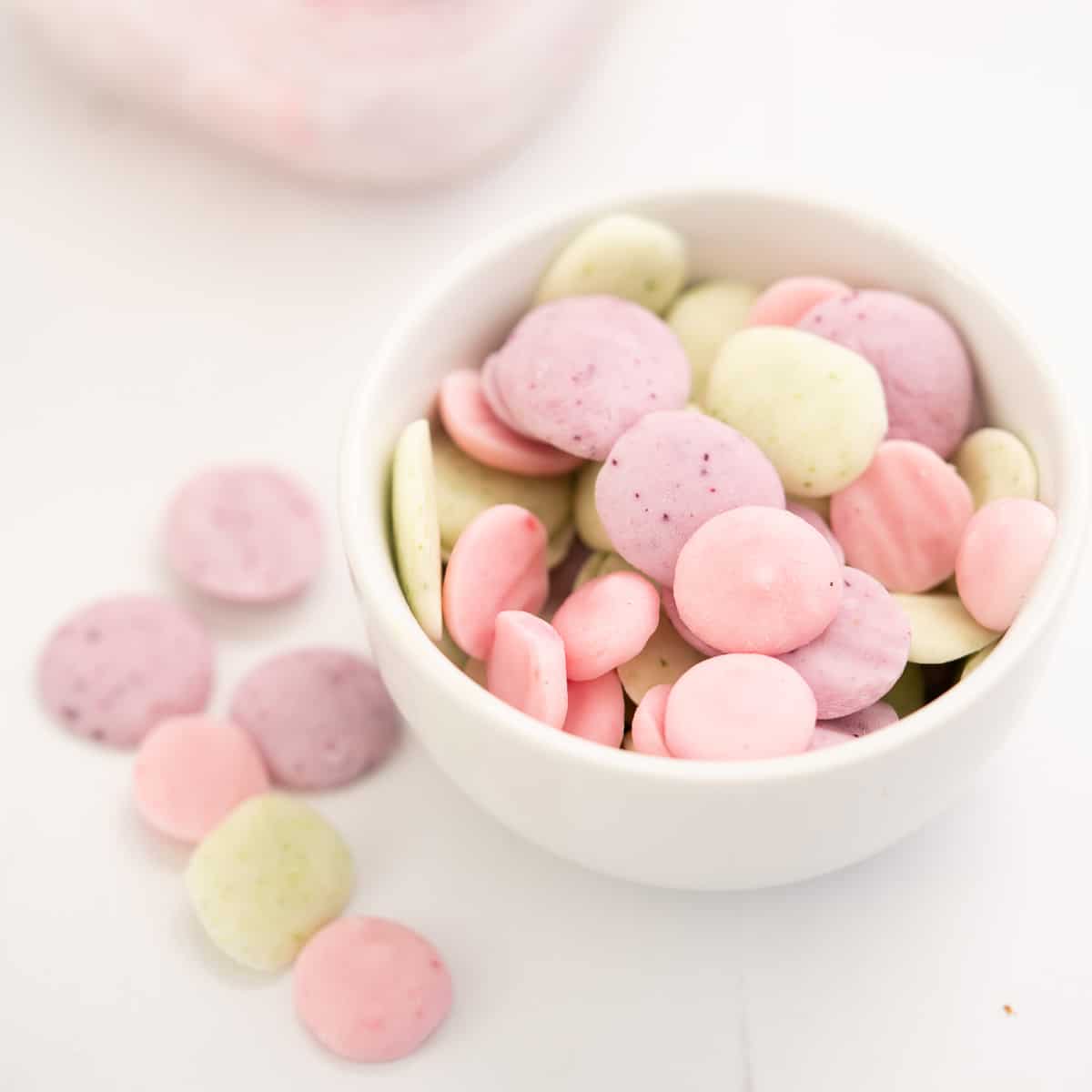
Flavorings for Baby Yogurt
If you do want to offer flavored yogurt to your baby then fruit and homemade fruit purees is one of the best ways of doing this try:
- Blueberry puree swirled through yogurt
- Apple puree (applesauce) and a little cinnamon
- Pear puree
- Banana puree
- Kiwi puree
- My blueberry yogurt recipe is a great place to start
Please be aware that if your child is under one year of age then honey is not a suitable sweetener and should not be added to yogurt.
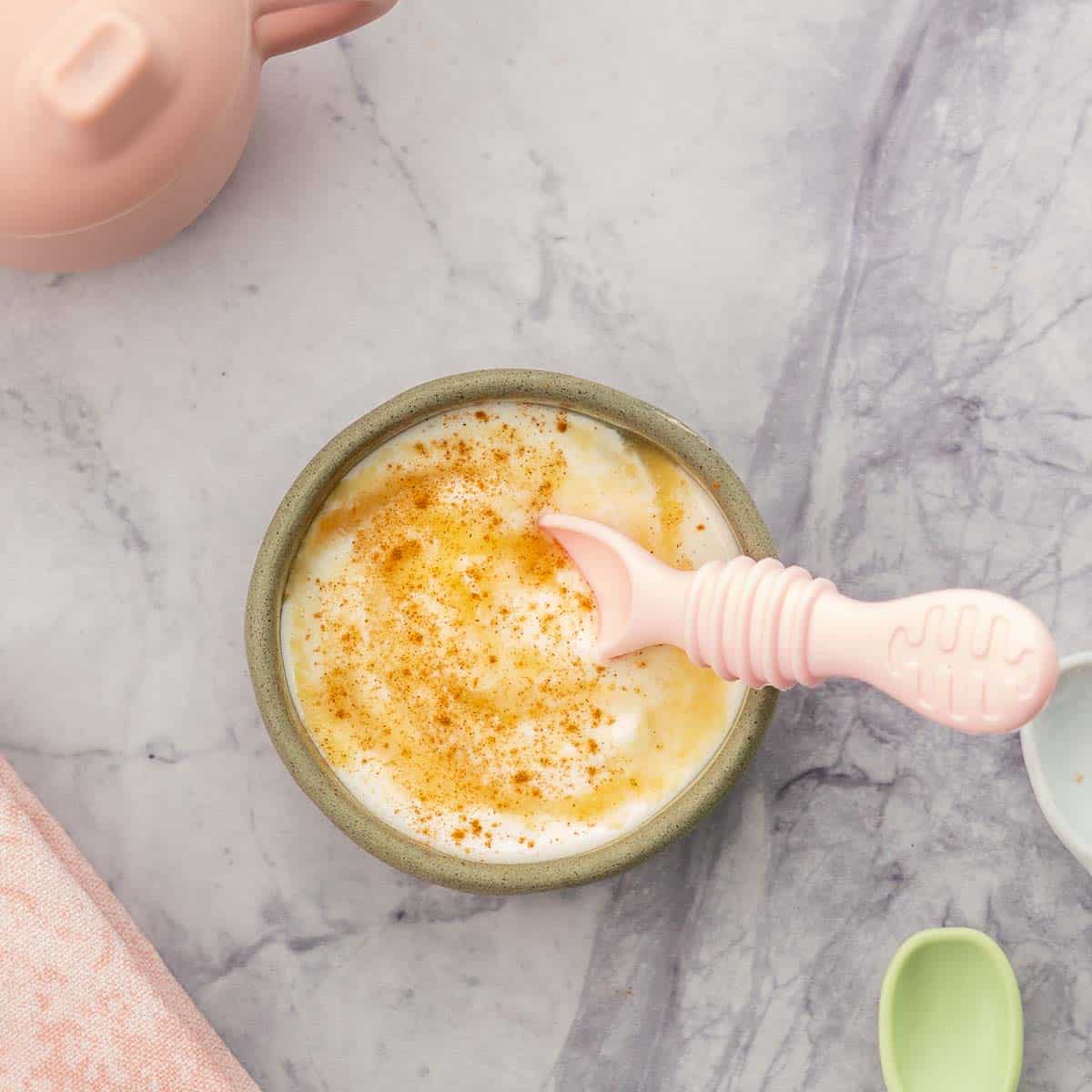
FAQs
Greek yogurt or greek style yogurt is yogurt that is strained, this removes excess liquid (whey) resulting in a thicker and creamier texture. Greek yogurt typically has a higher protein content, while regular yogurt has a higher calcium content, both are low in sugar and salt making them suitable for babies.
.Cow's milk and dairy products can in fact be introduced to your baby in complementary meals and snacks offered to your baby when they start solids. It is however not advised by dietary guidelines to substitute breast milk feeds or infant formula feeds with cows' milk until babies are over one year of age.
Babies should be offered full-fat, non-sweetened yogurt.

Quick Start Guide To BLW
Baby led weaning doesn’t need to be complicated, grab my quick start guide to begin your little ones food journey.